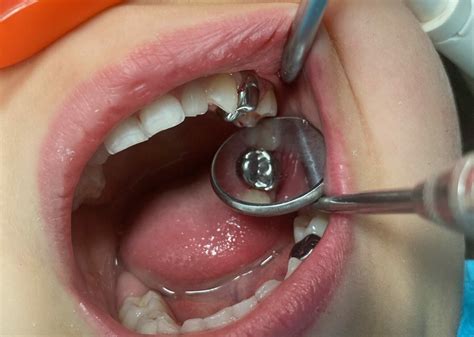How Long Are Crowns Sensitive
Ronan Farrow
Apr 05, 2025 · 3 min read

Table of Contents
How Long Does Crown Sensitivity Last? A Comprehensive Guide
Dental crowns are a common restorative treatment used to protect and strengthen damaged teeth. While they offer numerous benefits, many patients experience some degree of sensitivity following the procedure. Understanding the duration and causes of this sensitivity is crucial for managing expectations and ensuring a comfortable recovery.
Understanding Crown Sensitivity
Crown sensitivity after placement is a common occurrence, affecting a significant percentage of patients. The level of sensitivity can vary widely, ranging from mild discomfort to more intense pain. The good news is that this sensitivity is typically temporary.
What Causes Post-Crown Sensitivity?
Several factors contribute to the development of sensitivity after crown placement:
- Irritation of the Tooth's Pulp: The procedure involves removing some tooth structure, which can temporarily irritate the sensitive pulp (nerve) inside the tooth. This irritation is the primary cause of post-crown sensitivity.
- Cement Irritation: The cement used to secure the crown can also irritate the tooth's dentin, leading to discomfort.
- Temporary Tooth Sensitivity: Some individuals experience heightened tooth sensitivity even without dental work, and a crown might simply exacerbate this pre-existing condition.
- Improper Crown Fit: In rare cases, an improperly fitted crown can place excessive pressure on the tooth, resulting in sensitivity. This is less common but requires professional attention.
How Long Does the Sensitivity Last?
The duration of post-crown sensitivity varies greatly depending on individual factors and the specific procedure. In most cases, sensitivity begins to subside within a few days or weeks. However, some individuals may experience sensitivity for a few months.
Factors Influencing Duration:
- Individual Sensitivity: Pre-existing tooth sensitivity significantly influences the recovery period. Individuals with sensitive teeth before the procedure often take longer to recover.
- Extent of Tooth Preparation: The amount of tooth structure removed during crown preparation plays a role. More extensive preparation may lead to longer-lasting sensitivity.
- Type of Cement Used: Different cements have varying degrees of potential for irritating the tooth pulp.
- Post-Procedure Care: Diligent adherence to post-operative instructions is crucial for minimizing discomfort and speeding up recovery.
Managing Post-Crown Sensitivity
Several strategies can help manage and alleviate discomfort during the recovery period:
- Over-the-Counter Pain Relief: Non-prescription pain relievers like ibuprofen or acetaminophen can effectively reduce pain and inflammation.
- Desensitizing Toothpaste: Using a toothpaste specifically formulated to reduce tooth sensitivity can help alleviate discomfort. These pastes often contain potassium nitrate or other desensitizing agents.
- Gentle Oral Hygiene: Maintain a gentle oral hygiene routine, avoiding aggressive brushing or flossing near the crown site.
- Avoid Irritants: Temporarily avoid extremely hot, cold, or sugary foods and drinks that can exacerbate sensitivity.
When to See Your Dentist
While post-crown sensitivity is usually temporary, it's essential to contact your dentist if:
- Sensitivity persists for an extended period (beyond several months)
- Pain is severe or unbearable
- You notice any signs of infection, such as swelling or throbbing pain
Your dentist can assess the situation, address any underlying issues, and provide additional strategies for managing your discomfort.
Conclusion
Post-crown sensitivity is a common, yet usually temporary, side effect. Understanding the causes and expected duration of sensitivity allows you to prepare for the recovery period and effectively manage any discomfort. Following your dentist's instructions diligently and employing appropriate pain management strategies will significantly aid in a smoother and quicker recovery. Remember to contact your dentist if sensitivity persists or worsens.
Featured Posts
Also read the following articles
| Article Title | Date |
|---|---|
| How Long After Goat Loses Ligaments | Apr 05, 2025 |
| How Long Can You Wear Magnetic Lashes | Apr 05, 2025 |
| How Long Can You Drive With A Bad Lifter | Apr 05, 2025 |
| How Long After A Cortisone Shot Can I Take Aleve | Apr 05, 2025 |
| How Long Can You Be On Workers Comp In Ohio | Apr 05, 2025 |
Latest Posts
-
How Long Do Filter Balls Last
Apr 05, 2025
-
How Long Do Ears Stay Numb After Facelift
Apr 05, 2025
-
How Long Do Deer Travel The Same Path Every Day
Apr 05, 2025
-
How Long Do Custom Orthotics Take To Make
Apr 05, 2025
-
How Long Do Crossbows Last
Apr 05, 2025
Thank you for visiting our website which covers about How Long Are Crowns Sensitive . We hope the information provided has been useful to you. Feel free to contact us if you have any questions or need further assistance. See you next time and don't miss to bookmark.
